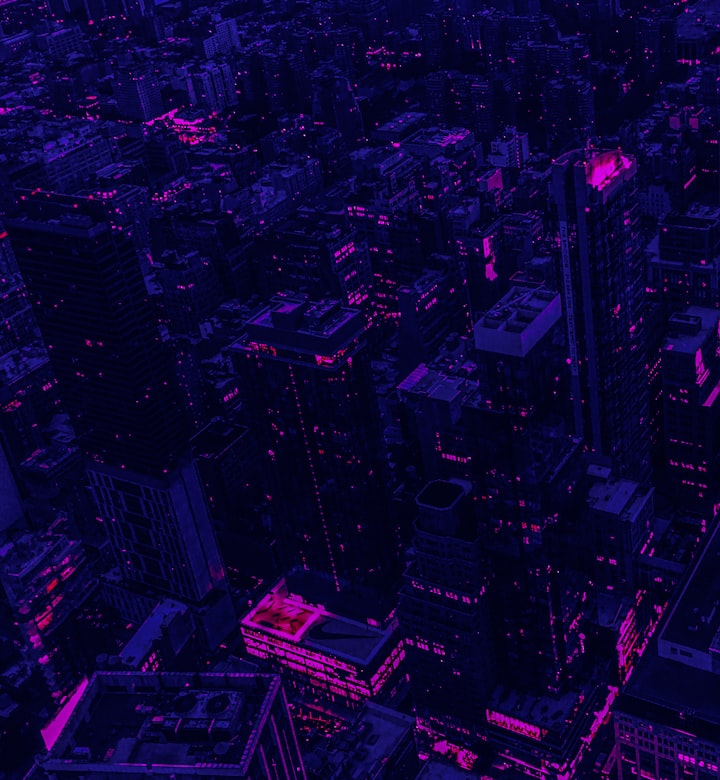We Might Actually Live in a Simulation
Elon Musk isn't crazy...

Elon Musk is constantly both shocking and fascinating the world with visionary concepts and contraptions. In the last decade, he’s re-invented the electric car and developed groundbreaking battery technology, which if properly invested, is poised to have a grand impact on the world’s shift away from fossil fuels.
Amazingly still, as if for the sake of countermeasure against his ideas to save the world, he also has comprehensive plans to terraform and colonize Mars (i.e. if the world falls apart, we can just move there). This plan, as he casually describes, could involve the simple act of detonating thermonuclear devices at both of Mars’s poles in order to fling hydrogen, oxygen, and nitrogen into the beginnings of a makeshift atmosphere. Very little of what Musk says fails to surprise.
But one thing he’s said recently has caused a lot of his otherwise ardent followers to take some pause. It has become apparent (through the magic of viral internet articles) that Elon Musk believes that all of us today here on Earth are living in a computer simulation. A real life Matrix, if you will. Surely we’ve all thought about it—I mean, the question is often irresistible.
Every now and then I catch myself going about the day almost subconsciously believing that I’m in my own version of the Truman Show, or I experience déjà vu and think to myself, “Oh, well they must have changed something.”
But these only amount to silly shower-thoughts, right?
Well, maybe not. The fact of the matter is that a lot of people (a hell of a lot smarter than me) actually do believe something like this—and for good reason! But it’s not quite as simplistic as the pop-news articles you may have read about Elon Musk’s kooky beliefs. In fact, this concept (and the argument from which it is based) is not Musk’s at all, but comes from a Swedish philosopher called Nick Bostrom.
Bostrom’s arguments are highly nuanced, and there is a following of philosophers who have responded to Bostrom’s work in ways far too subtle and detailed for me to discuss here—even if I pretended to understand all of them—but I can discuss here the very simple precepts of his argument, and why Elon Musk (among others) is not unreasonable for believing them. Indeed, if I do my job right, by the end of this little article you might find yourself believing that we’re in a simulation too.
Let’s begin with a bit of idle speculation:
Do you think that humans (or perhaps something a lot like humans, elsewhere in the incredibly vast universe) will ever gain the technology to simulate reality?
Don’t think along the lines of virtual reality, but more like the historical simulations in Assassin’s Creed. Do you think we will ever be able to run a digital simulation capable of generating people inside of it who are entirely convinced they’re alive, with feelings, memories, thoughts, loves, and desires?
Will we ever run computer simulations (perhaps like those in the show Black Mirror) such that the simulated reality would be utterly indistinguishable from real reality? Will there ever be a Matrix, per se, filled with people who are living out their lives completely unaware that they are simulated beings?
Well, a lot of people think we will.
According to Bostrom, there are a total of three different options, and logically speaking, one of these necessarily has to be the case:
- Humans go extinct before ever gaining the technology to simulate living reality.
- Humans choose not to create the technology to simulate living reality —perhaps for moral reasons, or perhaps just for lack of interest.
- Humans create the technology to simulate living reality.
Which of those three options do you think is most likely?
For the sake of argument, let’s all agree on number 3. Humans (or something like them) will, at some point in our collective history, probably gain the ability to simulate reality such that those within the simulation could not distinguish true reality from simulated reality. Let’s assume further that these humans do not only run such a simulation once. Indeed, it is surely most plausible that humans who are capable of running simulations of lived reality would do so more than just one time. Elon Musk, in any event, believes that this will most likely be the case.
What this allows us to conclude, however, is actually fairly startling:
If you are a conscious human being who is experiencing reality—at any point in history—then it is far more likely that you are doing so in one of the many simulations than in the one true version of reality.
Even if humans only run 100 simulations of reality in the entire history of the universe, there is still above a 99% chance that your conscious experience of reality is simulated.
So really, Elon Musk isn’t saying anything crazy at all when he says that he believes we are in a simulation. In fact, you could really say he’s being reasonably optimistic regarding humanity’s capability for achievement!
Would being merely simulated beings really be all that bad anyway? It certainly fits very well with the notion that multiple possible universes exist simultaneously, in which every different possibility plays out. It is also totally compatible with the idea that one’s life does not end with death.
It would be just like playing a video game and pressing restart, or reloading a previously saved game until you get the outcome you want. That’s almost comforting! Besides, the simulation could have re-started several times today, and you would have no more knowledge of this than Mario would.
Consider further, this might provide a speculative answer regarding the apparent absurdities that occur at the sub-atomic level. Perhaps our scientific investigations have led us to the very limits of the programming, and these limits show up in concepts like the speed of light, or the Planck length.
Whether you believe this conclusion or not, surely we can all agree that Elon Musk isn’t a crazy person for believing that humans will one day gain this technological ability, and use it. A lot of people believe this.
But if I may, I would like to offer one final thought regarding this concept:
I don’t think it’s absurd to believe that humans will ever be capable of this kind of technology, and I certainly hope that we do not go utterly extinct before ever getting that far, but I think there is something more to be said in favour of option number 2:
I can’t imagine what humans of the future would be interested in that would make a flawless simulation of reality seem boring, but I think that the idea of using such technology should give us considerable moral pause.
Consider the common moral argument against God. What kind of monster would God have to be (the argument goes) to create a world where so many suffer needlessly, die alone and in misery, starve, murder, rape, and so on, especially if God could have created a better world where this kind of thing didn’t happen? Think of the countless victims of all the genocides in human history. Think of the countless children who have died—even in recent years—from starvation and preventable diseases.
If God is a monster for allowing these things to happen, how monstrous would a person have to be to simply push a button and allow all of these things to happen all over again—even once, let alone numerous times? Indeed, it is a heinous thing to be responsible for the death of even one innocent person, but the person who runs a simulation of the living universe is single-handedly responsible for every death of every innocent person in history. Imagine if we were in a simulation right now, and imagine that some person sitting at a computer was responsible for absolutely every atrocity you have ever heard of, and also every one you haven’t.
How could such a person live with that? Perhaps humans of the future will be technologically capable of creating simulated realities but would choose not to do so for exactly these ethical reasons.
Maybe humans turn out, in at least one important sense, ethically superior to God?
But then, does the bad in the universe outweigh the good? Perhaps running countless simulations of reality is the greatest gift humanity could give to itself. But then, who knows? Maybe we’re the ones in the real reality.
Would that really give you any comfort?





Comments
There are no comments for this story
Be the first to respond and start the conversation.